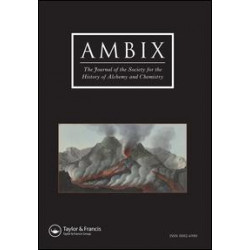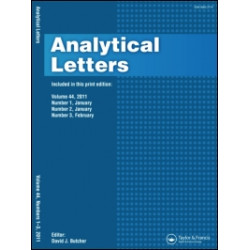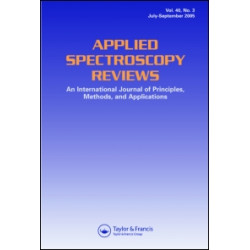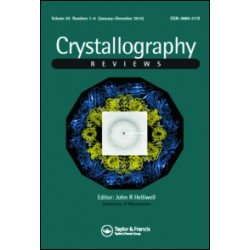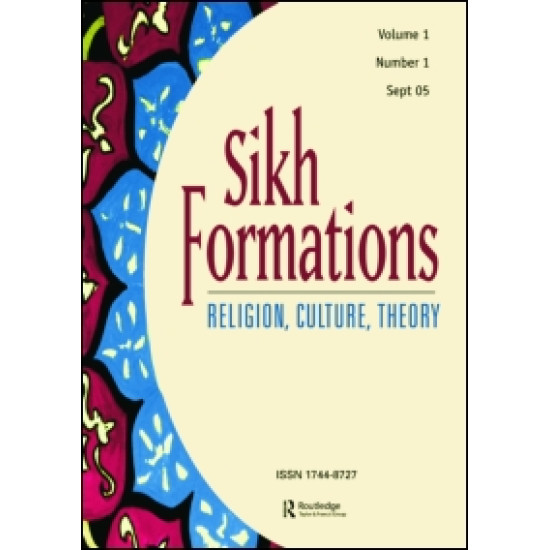
Sikh Formations:Religion,Culture,Theory
Sikh Formations: Religion, Culture, Theory is an interdisciplinary and international journal which provides a critical forum for scholarly exploration of Sikh and Punjabi cultural formations. It does this within a dynamic setting that embraces the globalized context of Sikhs and Sikhism.
The aim of this journal is to open up alternative horizons, to promote engagement with a wider spread of disciplinary approaches, to encourage conceptual innovation and provide a venue for the emergence of new perspectives. In addition to conventional scholarly research articles and book reviews, we also welcome shorter essays, conference and symposium proceedings, interviews, longer book reviews, poetry, colloquia etc from the full range of disciplines, including but not limited to: sociology, history, anthropology, philosophy, religious studies, political theology, women and gender studies, comparative literature, postcolonial studies, musicology, teaching and pedagogy, art and architecture, politics, international relations, law and social work.
The aim of this journal is to open up alternative horizons, to promote engagement with a wider spread of disciplinary approaches, to encourage conceptual innovation and provide a venue for the emergence of new perspectives. In addition to conventional scholarly research articles and book reviews, we also welcome shorter essays, conference and symposium proceedings, interviews, longer book reviews, poetry, colloquia etc from the full range of disciplines, including but not limited to: sociology, history, anthropology, philosophy, religious studies, political theology, women and gender studies, comparative literature, postcolonial studies, musicology, teaching and pedagogy, art and architecture, politics, international relations, law and social work.
Sikh Formations is particularly open to multiple ways in which cultural production creates zones of profound expressive possibilities by continually generating texts and contexts of reflexive import. To this end we also encourage submission of essays in Punjabi language. It is our hope that the social space in which our contributors argue and converse will challenge the hegemonic space of dominant national ideologies and national languages.
Peer Review Policy:
All research articles published in this journal have undergone rigorous peer review, based on initial editor screening and anonymized refereeing by at least two referees.
₹61,381.81







